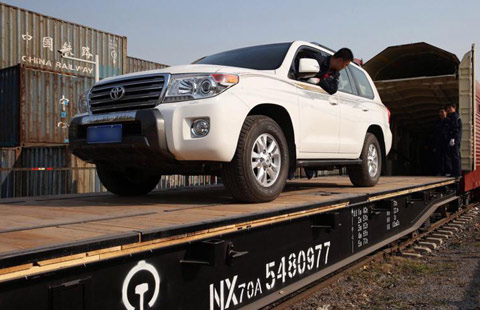Customers' desire for quality boosts online shopping
By Gao Yuan (China Daily) Updated: 2014-11-06 14:27By leveraging buyer and seller data from this ecosystem, Alibaba has created a data analytics operation that gives a complete view of a customer at any phase of the purchasing journey.
More important, innovation in Internet finance has taken off in China because of the booming online shopping sector. Alibaba's Web-based personal finance service, Yu'ebao, attracted 81 million users within eight months of its launch.
"Yu'ebao's success has spurred other Internet companies to burst onto the scene with similar products," Zeng said. "The sharp rise of the Internet finance business in China - and the acceptance of services like Yu'ebao - is intensifying the pressure on traditional financial institutions, making it imperative that they innovate, and quickly."
Alibaba handles more than 75 percent of China's online retail payments every day, making other websites niche players, according to Analysys International.
Analysts say that because Baidu, Tencent and other cyber giants are providing competition, the powerful upswing of the Internet-based economy is emerging as a new engine for China's growth.
Li Guoqing, founder and CEO of online book store Dangdang, said e-commerce companies have to "change with the times" after the Alibaba IPO.
Li is converting the company into a seller of fashion items, targeting young people who are used to making purchases on smartphones.
The online sector is putting pressure on brick-and-mortar stores to change their approach.
Charlie Dai, principal analyst at Forrester Research, said: "Internet companies are disrupting the retail industry in China, and the growing online population of metropolitan Chinese consumers and resellers is adding fuel to the fire.
"Traditional retailers need to become more agile and accelerate their customer-oriented digital business transformation."
 |
 |
| Alibaba set to expand 'double 11' | Overseas investors making hay from e-commerce bet |
- Internet firms launch financial revolution
- Private sector feels the pinch of HK protests
- Prime Capital cuts odds on 500.com
- CNOOC puts second deep-water rig into use
- Spring says time is right for leasing
- Mobile advertising is key in China
- China hails landmark China-Mexico high-speed rail co-op
- FTAAP a common vision, not a new rival
















